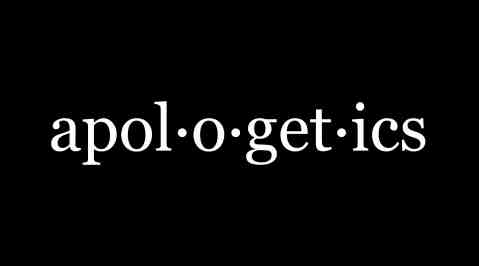Worldview Basics Pt.5-The Trinity
-Dylan R.
At last, we have reached the end of examining four important concepts in obtaining and maintaining a Christian worldview. As you might recall, John Frame states that the notion of God’s absolute personality, the clear Creator-creature distinction, the complete sovereignty of God, and the doctrine of the Trinity are vital metaphysical characteristics of a Christian worldview.[1] For our concluding discussion we will be reviewing the necessity of advocating a Trinitarian conception of God in our Christian weltanschauung.[2]
TBR Recommends…
by Robie Day
As I read through my list of blogs that I frequent each week, I continued to come across posts that I wanted to include in this week’s recommended reading. I found some to be extremely helpful, while others were just interesting. Hopefully you enjoy them as well.
Looking for a good Systematic Theology textbook? David Dunham offers a quick description of several leading systematic texts. David also began a new series this week entitled, “Godliness and Perfectionism.”
There has been much said about this week’s discovery of the Coptic fragment dubbed the Gospel of Jesus’ Wife. Here, Justin Taylor posted Francis Watson’s six-page analysis of the document.
Greg Laurie posted the third part of his series entitled “Why Jesus Had to Die.” Here’s Part 1 and Part 2.
Many parents struggle with the issue of neo-Darwinian evolution being taught in schools without any mention of intelligent design. Here is a parent’s guide to intelligent design and science education, provided by the Discovery Institute’s Center for Science and Culture.
This is just cool. Petapixel.com posted this photo, stating “This is the Most Zoomed-In Photograph Ever Created by Mankind.”
R.C. Sproul Jr. answers the question, “Who Are the Sons and Daughters of Men in Gensis 6:1-5?”
Tim Challies continues his series entitled “The Essential,” addressing the sin of pride.
Apologetics 101: Positive and Negative Apologetics
by Robie Day
As we move into the various methodologies of Christian apologetics, I think it will be helpful to first identify two general classifications of argumentative methods. Simply put, when engaging other worldviews, one can argue positively or negatively. However, when we say that one can utilize a positive or negative argument, we are not talking about the attitude or demeanor with which they approach the discussion (I addressed this in an earlier post on the biblical approach to apologetics). Below, I have provided two short, simple explanations of positive and negative apologetics: Read More…
TBR Recommends…
by Robie Day
Here are a few articles I enjoyed this week. Hope you enjoy them as well!
Joe Thorn explains how to pray for your pastor.
Dr. Al Mohler responds to the discovery of a 4th century Coptic document that has received a great deal of attention since being announced by the Smithsonian Institution on Tuesday.
This article is not a justification for myself, especially since I have not turned on our Wii in months. In this post, Stephen Altrogge rightly identifies that the real problem behind an obsession with video games, or any overindulgence for that matter, is really not a video game problem, but a heart problem.
For those Tolkien nerds out there, like myself, Peter Jackson’s The Hobbit will be in theaters in December. Needless to say, I am pretty excited! Here’s a new trailor for the prequel to the Lord of the Rings trilogy…
TBR Recommends…
by Robie Day
I apologize I have not been posting in my series on apologetics lately. I have been very busy with the start of the school year and the conference Dylan and I are hosting this weekend. I plan to post again this weekend. Regardless, here are a few articles I enjoyed this week…
Jared Wilson writes about the importance of the pastor’s ability to say “I don’t know.”
Michael Horton offers this very helpful article on making sound arguments and avoiding logical fallacies.
When it comes to tragedies like 9/11, Matt Rawlings explains that it is not only important that we remember, but how we remember.



